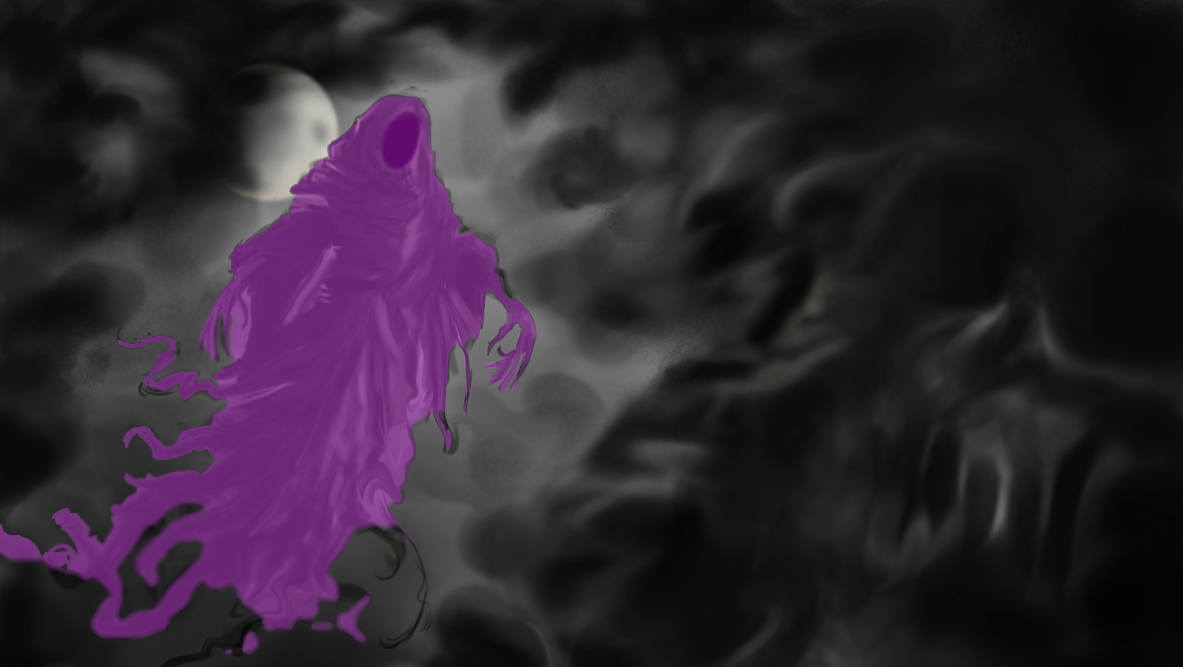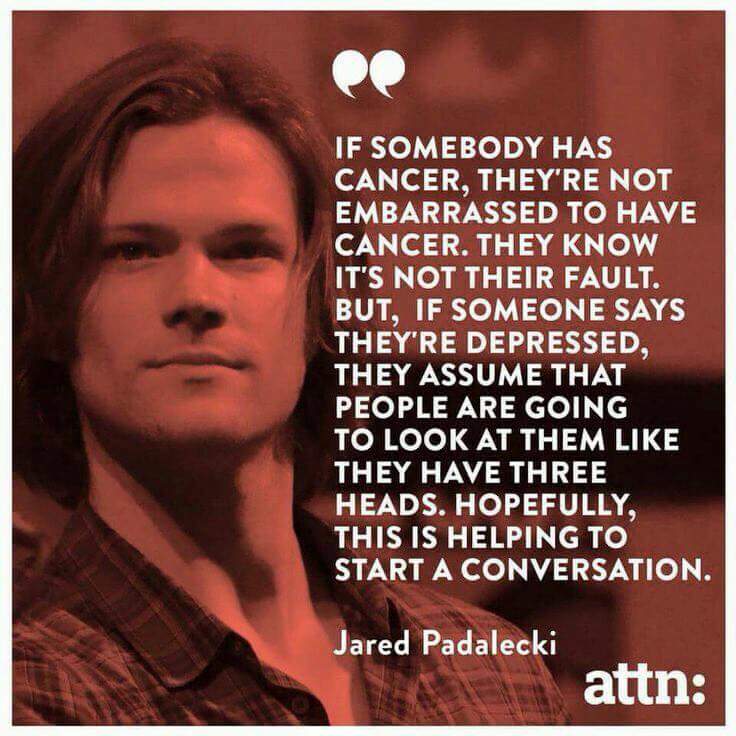This year at the San Diego Comic Con I was extremely honored to be able to interview the cast of Supernatural, among them Jared Padalecki, one of the leading actors on that television series. Padalecki recently opened up about his struggles with depression and started the Always Keep Fighting Campaign, intended to spread awareness.
The fans have been extremely supportive and Padalecki himself stated, “With the Always Keep Fighting campaign, it feels a lot like it’s grown into something bigger than I ever could have imagined.”
Other celebrities, like Will Wheaton, known for his roles on Star Trek and The Big Bang Theory, has also recently opened up about his struggles with anxiety and depression on project UROK.
I’m so excited that these inspirational people are speaking out against mental health stigma and that projects like Always Keep Fighting and Project UROK (started by comedian Jenny Jaffe) exist. It’s hard enough to struggle with a mental health disorder and it’s harder yet to feel ashamed about it. Stigma creates shame. Shame about the very painful human struggles that require compassion and support rather than judgment.
“Stop it!”
“What’s wrong with you?”
“Pull yourself together.”
“Be a man/woman.”
“You need to be stronger than that.”
You’ve probably heard some of these shaming messages. One of my personal favorites is, “Just don’t think about it.” If you’ve ever tried not thinking about something that hurts or bothers you or ever tried to suppress your emotions then you probably know that it doesn’t work. Not really. Not in the long term.

If you don’t believe me, let’s try this exercise. If you’ve ever read or seen ‘Harry Potter,’ then you might remember the Dementors. Dementors are awful creatures that feast on our happy memories, they literally suck the happiness out of people. They were meant to represent depression. If you look at the picture above, they certainly look quite awful and scary.
Now here’s the exercise. Let’s try to visualize a pink Dementor, such as the one in this picture:

Really look at this pink bedazzled Dementor. Study it’s pink features and imprint it in your mind. Done? Ok, good.
Now, I’d like you to try to suppress the image of the pink Dementor from your mind, along with the words “pink” and “Dementor” for 1 minute. Ready? Go!
How did that go? Most likely, not too well. In fact, the more we try to suppress something, the more we tend to think of it. The opposite way of coping is actually to open up to the difficult emotion and process it, perhaps along with the support of family, friends, or a mental health professional. By opening up about their struggles, Jared Padalecki, Wil Wheaton, and others like Jenny Jaffe, are making a profound statement. They are saying that I am ok and that what you are experiencing is normal. Nearly 30% of people in the U.S. experience depression at one point or another. By normalizing it, by opening up about it, people are not only able to receive the support they need to cope, they are also able to heroically empower others.
So be a hero today. Take a stand against stigma. You are not alone.
Dr. Janina Scarlet is a Licensed Clinical Psychologist, a scientist, and a full time geek. She uses Superhero Therapy to help patients with anxiety, depression, chronic pain, and PTSD at the Center for Stress and Anxiety Management and Sharp Memorial Hospital. Dr. Scarlet also teaches at Alliant International University, San Diego. Her book, Superhero Therapy, is expected to be released in July 2016 with Little, Brown Book Group.
If you would like to learn more about Superhero Therapy, please feel free to contact Dr. Janina Scarlet via Twitter @shadowquill, Facebook:https://www.facebook.com/Shadow.Scarletl, or via her website at www.superhero-therapy.com


Thank you for this post.. In 2004 I was diagnosed with Bi-Polar 2/Bi-Polar depression (as well as ADHD). As soon as I mentioned bi-polar to people, the first thought they had was that I was a powder keg that would go off at any moment. I tried explaining about the importance of the depression part, but people didn’t get it. I didn’t talk about it for a long time to people. As a pastor, it’s hard for people to even comprehend that I would even have depression let alone bi-polar depression. People can accept the ADHD as long as I’m medicated. On the other hand, depression and mental health are still big stigmas in many Christian circles (especially evangelical Christian circles). I learned through counseling that bi-polar depression (or any other mental health issue) doesn’t define me. It is part of my story and journey but not who I am. I’m a huge advocate for those with mental health issues. I try to explain to people who don’t understand that depression, anxiety, and the like are not casserole diseases where you can drop off a meal and two weeks later they’re fine. It’s an ongoing daily thing. that one simple casserole cannot cure. I’m very happy that there are prominent people who are stepping forward and talking about mental health and encouraging a change in how mental health is viewed. Again, thank you for post this.
Thank you so much for your wonderful post and your continued support. I’m so glad that you are becoming a superhero in educating others about mental health and providing support to all those who need it.
Excelsior! 🙂
Warmly,
Janina Scarlet